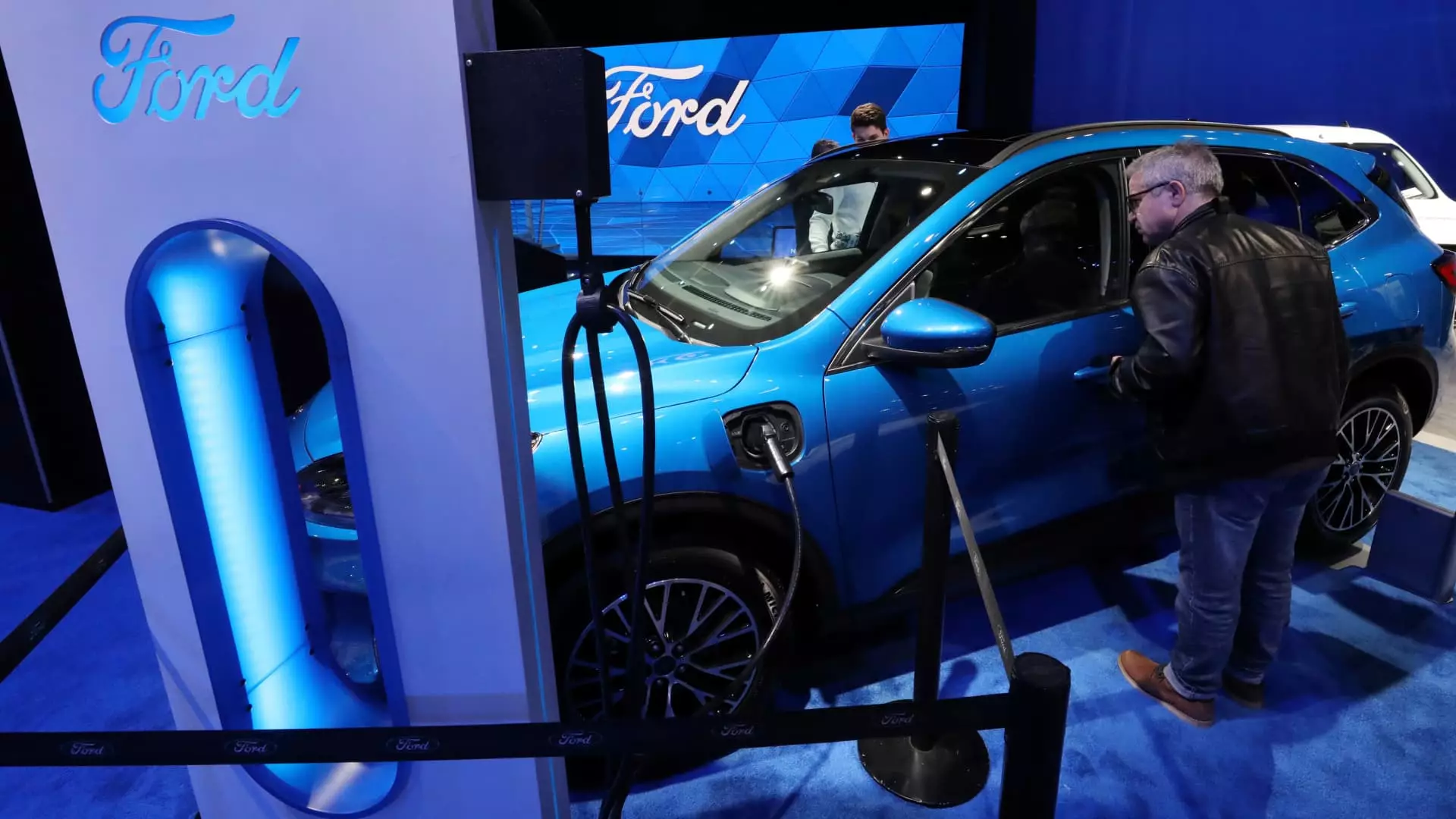Ford Motor’s recent announcement to delay production of a new all-electric large SUV and pickup truck has raised eyebrows in the automotive industry. The Detroit automaker has decided to postpone the production of the three-row SUV at a plant in Canada to 2027, pushing it back from the initial plan of 2025. Similarly, the next-generation pickup truck, codenamed “T3,” is also being delayed from late 2025 to 2026. This shift in EV plans underscores the challenges faced by Ford and the industry as a whole in terms of slower adoption rates and high production costs.
As part of its new strategy, Ford aims to offer hybrid options across its entire North American lineup by 2030. Despite delaying the production of all-electric vehicles, the company remains committed to investing in EVs. The decision to shift focus to hybrid models reflects the changing market conditions and the need to address profitability concerns in building and selling electric vehicles. Ford acknowledges the importance of capital allocation and plans to bring to market a mix of gas, hybrid, and fully electric vehicles at the right time.
Ford’s decision to delay the production of all-electric SUVs and trucks is driven by the desire to capitalize on emerging battery technology. The additional time will enable the consumer market for three-row EVs to further develop, allowing Ford to incorporate the latest advancements in battery technology. By leveraging these innovations, the company aims to provide customers with increased durability and better value in its electric vehicles.
While delaying production of all-electric vehicles, Ford continues to focus on strategic investments in new facilities. The company’s “BlueOval City” campus in Tennessee is set to become a hub for producing breakthrough, next-generation EVs. Ford’s massive Tennessee facility, part of an $11.4 billion investment, will begin production of the next-generation all-electric truck in 2026. The automaker is also constructing battery plants in Michigan, Tennessee, and Kentucky to support its EV initiatives.
Ford’s financial performance in the electric vehicle segment has faced challenges in recent years. The company’s “Model e” electric vehicle business reported a loss of $4.7 billion in 2023, including $1.57 billion in the fourth quarter alone. Looking ahead, Ford expects the unit to incur further losses between $5 billion and $5.5 billion in 2024. Despite these financial setbacks, Ford remains optimistic about the future of its EV business and its ability to deliver innovative, fully software-enabled electric vehicles to the market.
Ford’s decision to delay production of all-electric SUVs and trucks while focusing on hybrid options underscores the company’s strategic shift in response to market dynamics. By leveraging emerging battery technology and prioritizing strategic investments, Ford aims to position itself as a key player in the evolving electric vehicle landscape. While challenges persist, the company’s commitment to scaling a profitable EV business and delivering innovative electric vehicles highlights its long-term vision for sustainable mobility.

